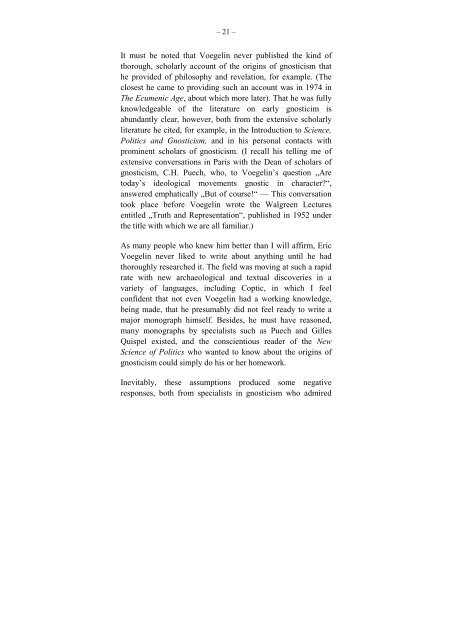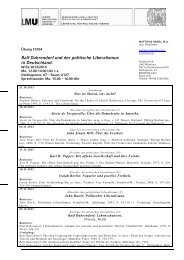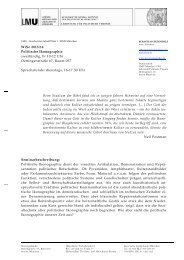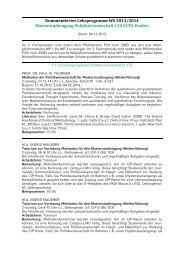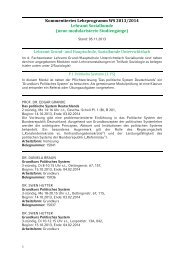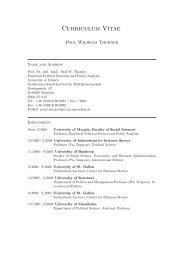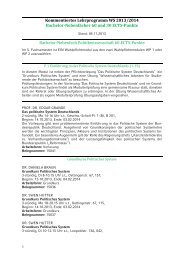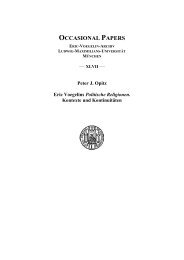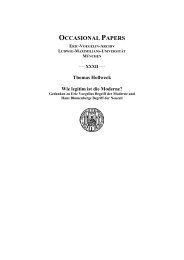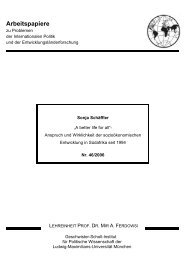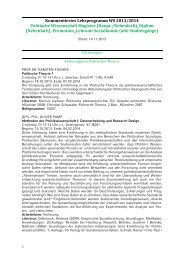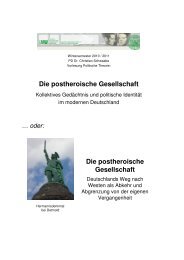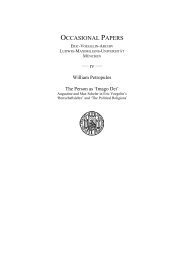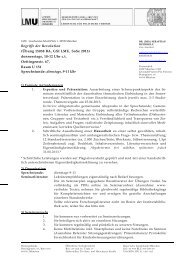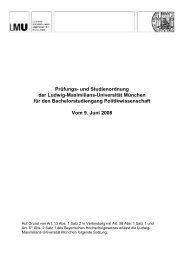Eric Voegelin.pdf - Geschwister-Scholl-Institut für Politikwissenschaft
Eric Voegelin.pdf - Geschwister-Scholl-Institut für Politikwissenschaft
Eric Voegelin.pdf - Geschwister-Scholl-Institut für Politikwissenschaft
Create successful ePaper yourself
Turn your PDF publications into a flip-book with our unique Google optimized e-Paper software.
– 21 –<br />
It must be noted that <strong>Voegelin</strong> never published the kind of<br />
thorough, scholarly account of the origins of gnosticism that<br />
he provided of philosophy and revelation, for example. (The<br />
closest he came to providing such an account was in 1974 in<br />
The Ecumenic Age, about which more later). That he was fully<br />
knowledgeable of the literature on early gnosticim is<br />
abundantly clear, however, both from the extensive scholarly<br />
literature he cited, for example, in the Introduction to Science,<br />
Politics and Gnosticism, and in his personal contacts with<br />
prominent scholars of gnosticism. (I recall his telling me of<br />
extensive conversations in Paris with the Dean of scholars of<br />
gnosticism, C.H. Puech, who, to <strong>Voegelin</strong>’s question „Are<br />
today’s ideological movements gnostic in character?“,<br />
answered emphatically „But of course!“ — This conversation<br />
took place before <strong>Voegelin</strong> wrote the Walgreen Lectures<br />
entitled „Truth and Representation“, published in 1952 under<br />
the title with which we are all familiar.)<br />
As many people who knew him better than I will affirm, <strong>Eric</strong><br />
<strong>Voegelin</strong> never liked to write about anything until he had<br />
thoroughly researched it. The field was moving at such a rapid<br />
rate with new archaeological and textual discoveries in a<br />
variety of languages, including Coptic, in which I feel<br />
confident that not even <strong>Voegelin</strong> had a working knowledge,<br />
being made, that he presumably did not feel ready to write a<br />
major monograph himself. Besides, he must have reasoned,<br />
many monographs by specialists such as Puech and Gilles<br />
Quispel existed, and the conscientious reader of the New<br />
Science of Politics who wanted to know about the origins of<br />
gnosticism could simply do his or her homework.<br />
Inevitably, these assumptions produced some negative<br />
responses, both from specialists in gnosticism who admired


